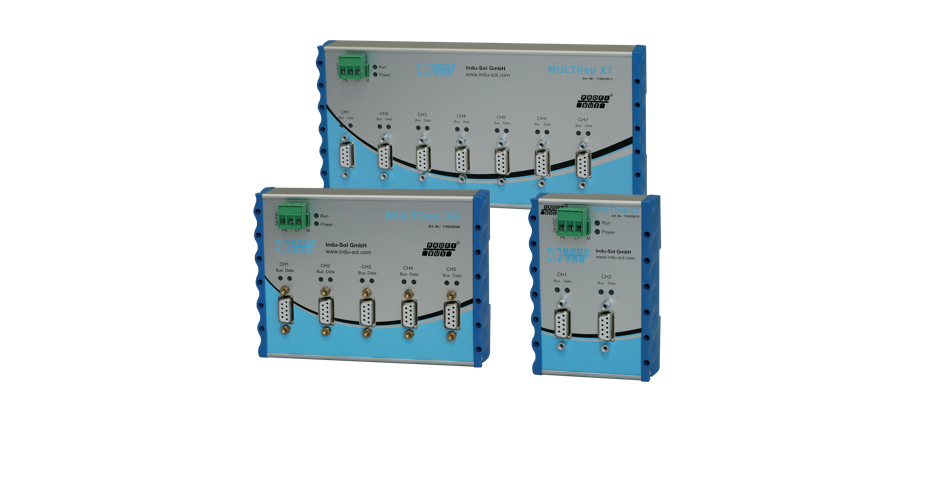Repeaters are one of the most important devices in the arsenal of tools for managing PROFIBUS networks. By receiving, refreshing, and forwarding the fieldbus communication signal, repeaters amplify the data transmission to successfully reach its destination on the network. They’re required for any PROFIBUS network with cables longer than 200 meters or a series of more than 31 devices.
While repeaters have long been a part of industrial automation, they’re top-of-mind for many who work with PROFIBUS these days. Siemens recently announced the company was phasing out its PROFIBUS repeaters, which will be completely off the market by October 2026. Thankfully, manufacturers like Indu-Sol are still producing these critical devices.
Why are PROFIBUS repeaters important?
PROFIBUS has been a standard communications protocol for automation networks since the '90s. Although there are newer standards like PROFINET today, plenty of production lines still use PROFIBUS and have no plans to switch anytime soon. And repeaters are essential for keeping those PROFIBUS networks up and running.
Using repeaters to extend PROFIBUS networks
Repeaters are typically added to a PROFIBUS network when the owner wants to extend it. Maybe they’ve bought a new part for a machine — some new cylinders or new motors to be controlled. Maybe they have a new product and need to change the line. No matter what, a repeater is usually necessary to include a new addition to a network.
Using PROFIBUS repeaters to rebuild networks
Another condition for installing repeaters is when PROFIBUS networks are being rebuilt. After many years of operation, it’s quite common for an industrial automation network to need an overhaul of some kind or another. There can often be an accumulation of issues affecting production, either from when the network was first created or as it was updated over time. Incorporating one or more repeaters into the rebuilt network can not only address those issues but also help prevent future problems. With multi-channel repeaters, it’s possible to create a star-structured network, splitting a line into segments for each device or series of devices with a similar purpose. It’s a network topology with numerous advantages that ensure more stable operation, including the ability to separate interference-prone components and zero in on and diagnose errors.
Using PROFIBUS repeaters for troubleshooting networks
An additional benefit that comes with having a repeater installed on a PROFBUS network is how much easier it makes troubleshooting. By creating separate segments with termination on either end in the network — with a repeater in the middle — it takes much less effort to find and debug errors.
However, not all PROFIBUS repeaters enable easier troubleshooting equally. Multi-channel repeaters create more segments that separate devices and thus more specificity on the error’s location than single-channel repeaters. But there are other aspects as well. A frequent complaint about some models of repeaters (including the soon-to-be-retired Siemens repeaters) is the use of screw terminals instead of connectors. A repeater with connectors can allow diagnostic devices to link with the network and monitor incoming and outgoing signals for any errors.
Indu-Sol’s MULTIrep PROFIBUS repeaters
Indu-Sol’s line of MULTIrep repeaters is is ideal for any PROFIBUS network upgrade, extension, or overhaul. Not only do they meet all the necessary PROFIBUS requirements and link to the network through connectors, but they also feature integrated quick diagnosis and error filtering. Every MULTIrep repeater constantly monitors PROFIBUS telegram traffic and indicates if it detects any bus or data errors through status LEDs on the device. This enables even quicker and easier network troubleshooting that narrows down the affected segments at a glance.
So, while some manufacturers are closing down their production of repeaters for PROFIBUS networks, others are still going strong and even adding a level of innovation to their versions of the device.
At Lindh Automation, we help our customers make informed choices that reduce long-term maintenance costs and simplify troubleshooting. We’ve seen firsthand how much impact a repeater can have on the stability of a PROFIBUS network.
Got questions about PROFIBUS repeaters, segmentation, or diagnostics? Reach out to Mattias Lindh directly — we’re here to help.


